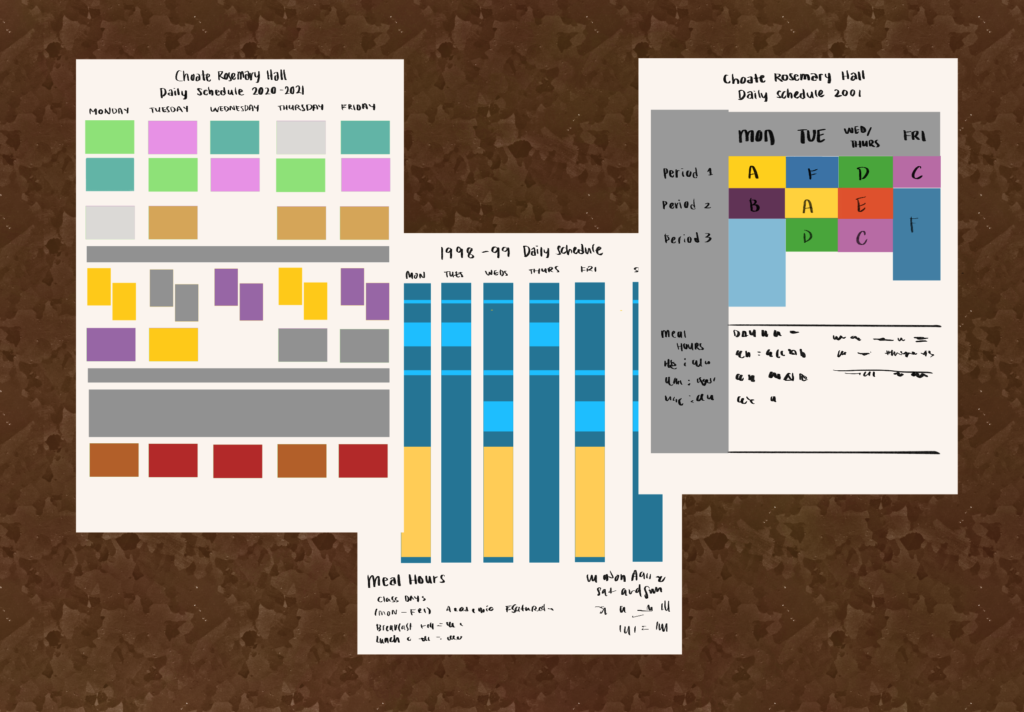At Choate, grades can have a great impact on students’ lives and wellbeing. Every class at Choate is required to give a letter grade measuring student achievement, but how do teachers — and students — view the grading system?
English teacher Mr. David Loeb believes that grading can be productive for student learning. He said, “I feel that our grading system might help some students, as it helps them set goals for themselves and lets them know how they’re doing.” However, he acknowledged the potential downfalls of traditional grading systems like Choate’s: “For other students, grades likely don’t help that much. They might distract them or keep them from the sort of work that will lead to learning and improvement.”
In Mr. Loeb’s English classes, grading is based off of a student’s progress and effort. He explained, “My general philosophy is that students do not earn grades: I give them. Grades are based off quality and progress of one’s writing and how engaged you are in class.”
Ms. Kathryn Rose-Noonan, a French teacher, views grades as necessary to the classroom. She said, “I have never taught somewhere without grades, so I’m unsure of the alternative. I definitely see the value in giving concrete markers in how someone’s progressing in a class.” Assessing her students on a variety of language acquisition techniques — including reading, listening comprehension, and speaking — Ms. Rose-Noonan is grateful for the structure provided by classroom assessments. She said, “Grading helps students learn depending on the student. Some like to have the marker and others don’t.”
However, other teachers question the merits of Choate’s grading system. Mr. Deron Chang, a biology teacher, said, “In my opinion, grading is a necessary evil. I think ninety percent of students out there are motivated by grades. I don’t know if that’s necessarily a bad thing, but it would be great if we could develop a system where it is simply about the joy of learning.”
While he acknowledged the necessity of measuring student achievement, Mr. Chang believes improvements can be made to the current system. He said, “We could change our curriculum to deemphasize grades and try to produce kids who are more into learning for learning’s sake. In fact, before Choate, I worked at a school that gave effort grades which you would receive in addition to your letter grade.”
In Mr. Chang’s biology class, the focus is on mastery, rather than on memorization. He described his grading method as “constantly redoing something to show you have complete competence,” emphasizing students’ learning process alongside content. He said, “Ultimately, the idea of mastery means that the student comes out of it having a complete understanding of how to do something or present a concept.”
Students expressed mixed opinions on the efficacy of traditional grading systems. Mirialie DeJesus ’18 said, “With the current grading system, teachers have a pretty good amount of flexibility and range with what they grade and how they are grading.” She continued, “There are a lot of disparities in how teachers decide to grade. I’ve had teachers who say they’ll give out grades of B+, but not A+. Having an A+ as an option is a weird thing if some teachers don’t make it a possibility.”
Eilidh Dunsmore ’19 feels that grades help motivate students to work harder in all of their subjects, not just the ones that are in their area of interest. However, she questioned the accuracy of grades to measure student learning. She commented, “The current grading system doesn’t necessarily reflect how competent we are in a subject or the amount of time or effort we have put in. It’s easy to pick students who are very good at taking tests, but actually understanding an assignment and getting a good grade on it are very different things.”
Mr. Chang concluded, “I think the problem is that students don’t have the opportunity to slow down and see what they have done well on and what they need to improve on. We need to spend more time allowing kids to reflect on how they can become better learners.”





